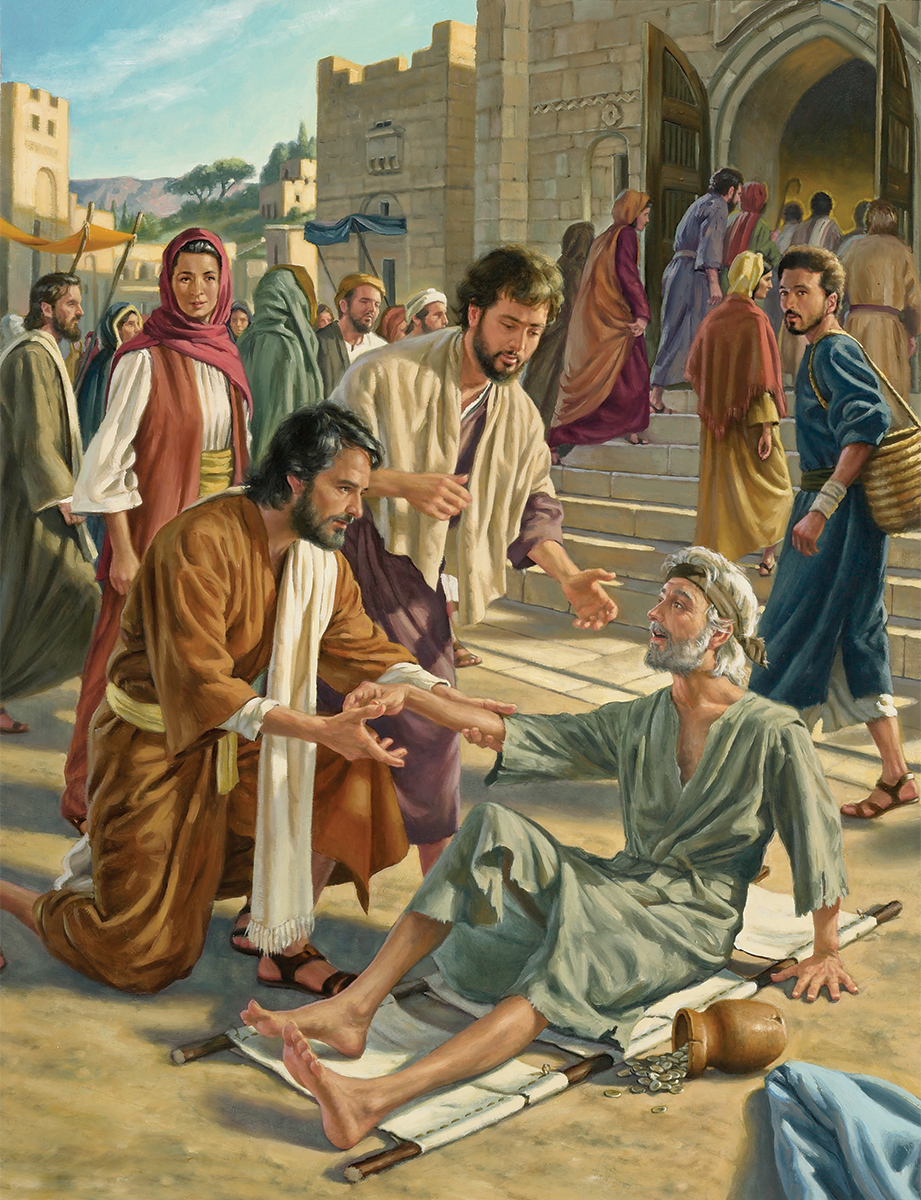To accompany your Come Follow Me study for July 3-9
In addition to reading the indicated chapters, you may wish to:
- Read the applicable portions of the New Testament Institute Student Manual at
- Browse the material “Acts 1–5 – Faithful Resources for Come, Follow Me 2023 Week 28″ at Acts 1–5 – Faithful Resources for Come, Follow Me 2023 Week 28 – FAIR (fairlatterdaysaints.org)
See the following videos:
- Come Follow Me (July 3-9) | OFF-THE-CHART GROWTH | Acts 1-5 at (3) Come Follow Me (July 3-9) | OFF-THE-CHART GROWTH | Acts 1-5 – YouTube
- Peter and John Heal a Man Crippled Since Birth at Peter and John Heal a Man Crippled Since Birth – YouTube
- Peter Preaches and Is Arrested at Peter Preaches and is Arrested – YouTube
- Peter and John Are Judged at Peter and John Are Judged – YouTube
- Peter and John Continue Preaching the Gospel at Peter and John Continue Preaching the Gospel – YouTube
- Acts of the Apostles (minute 2:13-33:43) at https://www.youtube.com/watch?v=q5bTIUrUw0M
If you would like a Kahoot game related to this material which you could use for personal study or use with your family or your class, click here: https://create.kahoot.it/share/acts-1-5/afa689a5-4f35-4e25-9cdf-f52df5561499. (To use it with a group, after clicking on this link, you will need to log into Kahoot, creating a free account if you have not done so previously, then click on the blue “Start” button.)
Points to Ponder in Acts 1-5
1. Acts is a great missionary handbook! We see more here of the nature of the true church and the similarity of the early Christian church to The Church of Jesus Christ of Latter-day Saints than anywhere else. What passages can you find in chapters 1-5 that could be especially helpful to modern-day missionaries?

2. What would you suppose Jesus did during the forty days that He continued to minister to His disciples after His resurrection?
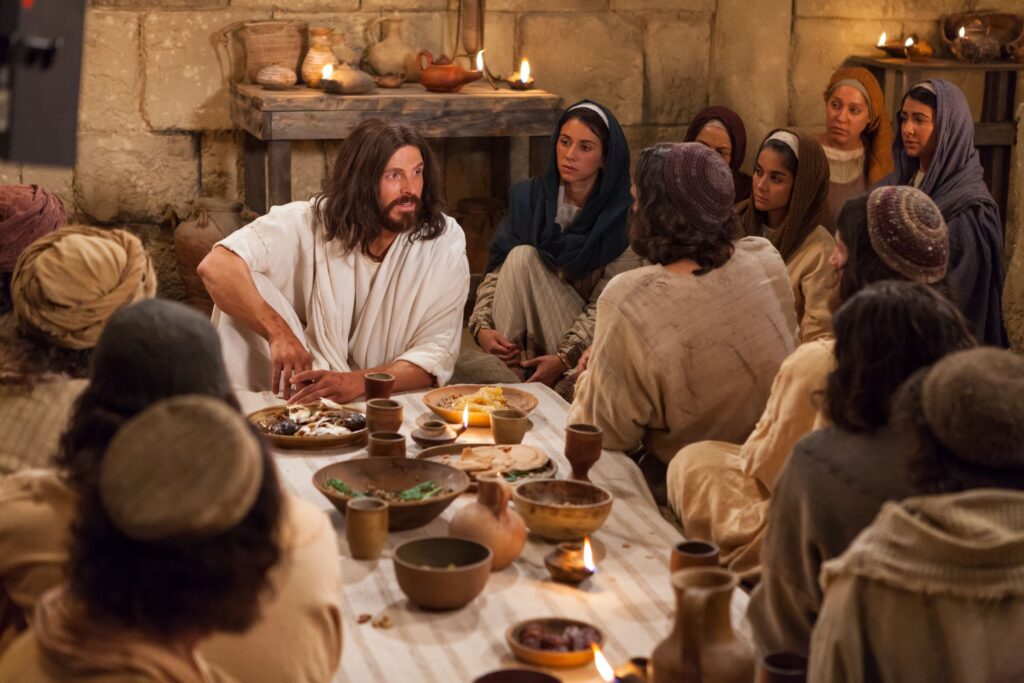
3. Why did Jesus not want the disciples to leave Jerusalem until after they received the Holy Ghost?
4. Why did the apostles ask in 1:6 if Jesus at that time would “restore again the kingdom to Israel,” when it is clear that He had already set up His church and kingdom?
5. Why is it Peter who seems always to take the lead in such matters as proposing the choosing of a replacement for Judas?
6. What do we learn from Acts 1 about the qualifications to be a member of the Quorum of the Twelve Apostles?
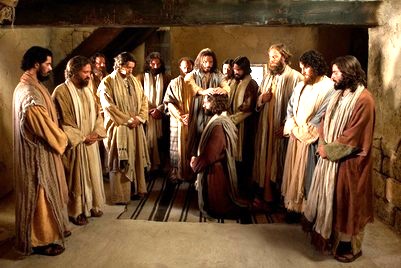
7. What would you say to someone who felt disappointed that Matthias was called by lottery to be an apostle rather than by divine revelation? (1:22-26)

8. Why was it so appropriate that the outpouring of the Holy Ghost came on the Day of Pentecost?
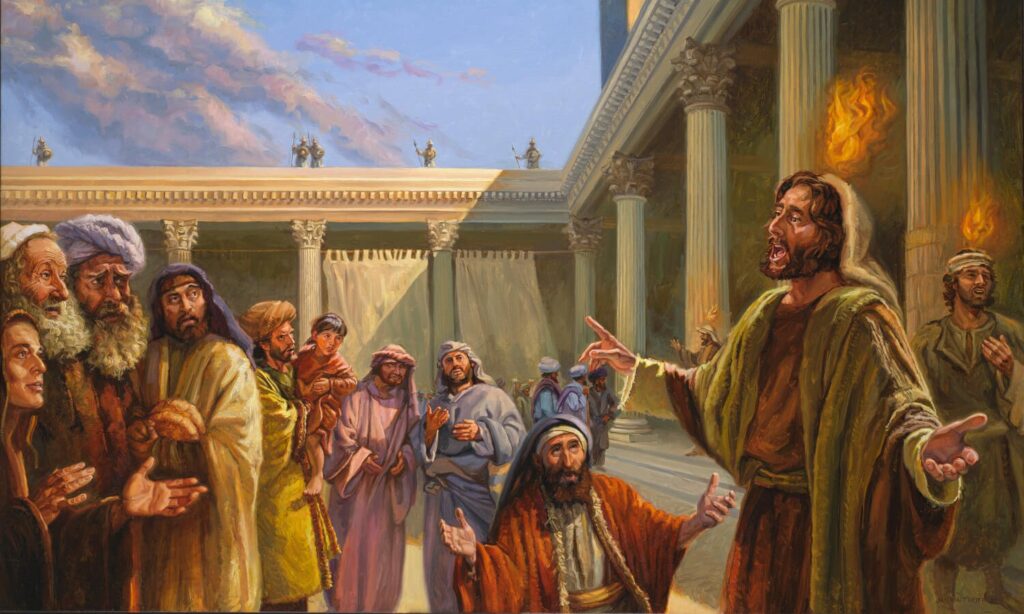
9. What do we need to know about the economic system which operated in the early church?
10. What do you find worth noting about Peter’s and John’s healing of the lame man at the temple gate?
11. Hadn’t Peter heard of the 12th Article of Faith? Why didn’t he obey the law of the land as expounded by the duly constituted legal authorities? (4:18-20; 5:29.)
12. Wasn’t death a rather harsh punishment for Ananias and Sapphira for being the equivalent of partial tithe-payers? At least they gave something to the support of the poor and needy. What modern applications can you see for their story?
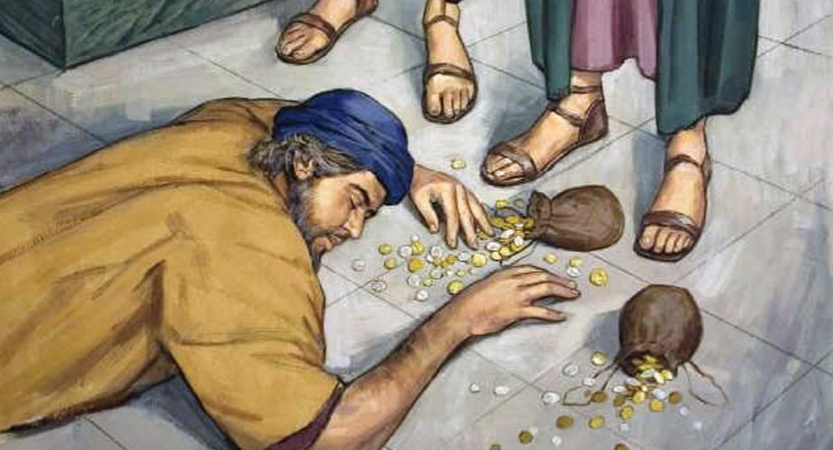
13. How do you account for the changes in Peter from the timid apostle prior to the crucifixion to the bold, fearless preacher we find in Acts?
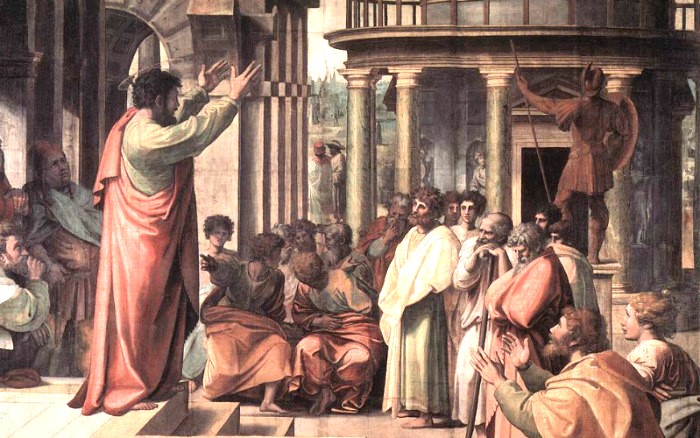
14. How do you account for the rapid growth of the church in the early chapters of Acts, with 3000 joining on one day, and 5000 more very soon thereafter?
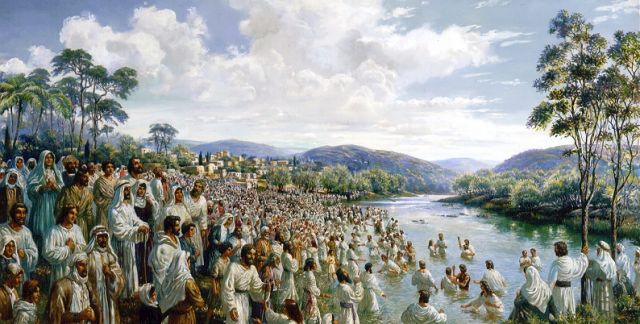
Possible Answers to Points to Ponder in Acts 1-5
1. Acts is a great missionary handbook! We see more here of the nature of the true church and the similarity of the early Christian church to The Church of Jesus Christ of Latter-day Saints than anywhere else. What passages can you find in chapters 1-5 that could be especially helpful to modern-day missionaries?
The list could include at least the following:
- 1:8: We are called to be witnesses of Christ in all the world.
- 1:11: Jesus still has His resurrected, tangible body of flesh and bones and is not merely a personage of spirit.
- 1:22-26: The true church will have a Quorum of Twelve Apostles, with new apostles being called through revelation to replace those who die.
- 2:16-18: All, young and old, male and female, can and should enjoy the gifts of the Spirit, including prophecy, visions, and inspired dreams.
- 2:38-39: All are commanded to repent and be baptized for the remission of sins, with the promise that they can then receive the gift of the Holy Ghost.
- 2:44-46; 4:32, 34-35: The true church will look after the temporal as well as the spiritual needs of its members.
- 3:6-8; 5:12, 15-16: The gift of healing and performance of miracles are other spiritual gifts in the Lord’s church.
- 3:21: The promise of a then future “restitution of all things,” or restoration, presupposes a prior general apostasy.
- 4:13: The Lord uses those the world considers “unlearned and ignorant” to do His work.
- 4:29, 31, 33: Missionaries can and should speak with boldness.
- 5:19: The ministry of angels is another characteristic of the true church.
- 5:42: Missionaries should teach not only in public but in “every house.”
2. What would you suppose Jesus did during the forty days that He continued to minister to His disciples after His resurrection?
We don’t know for sure, but there is every reason to suppose it would have been similar to the time He spent with the Nephites, continuing to visit from time to time, teach, administer the sacrament, answer questions, etc., as recorded in 3 Nephi. No doubt He gave additional instructions about the organization and activities of the newly formed church. Robert Millett also observes, “It is fascinating to discover such ordinances as washings, anointings, sacred clothing, new names, and sacred marriage ceremonies mentioned in what is known as the apocryphal Forty-Day Literature” (Millet, Precept upon Precept, 305–6).
3. Why did Jesus not want the disciples to leave Jerusalem until after they received the Holy Ghost?
There are probably a couple of reasons. First, the Holy Ghost is absolutely necessary to enable missionaries to know where to go, what to say, and to bear witness to their listeners of the truthfulness of their message. As Jesus said to Joseph Smith in D&C 42:14, “If ye receive not the Spirit ye shall not teach.” Secondly, Jesus still had much to teach His followers during the forty days following His resurrection. If they were scattered all over, it would be more difficult. And they needed the strength they could gain from each other during this formative period.
4. Why did the apostles ask in 1:6 if Jesus at that time would “restore again the kingdom to Israel,” when it is clear that He had already set up His church and kingdom?
The apostles were not asking about His church but about the political kingdom that Jews had long assumed the Messiah would reestablish in place of the hated Romans overseers. Jesus doesn’t answer the question, basically telling them they don’t need to worry about that, but that they should be about the far more important work of building up His spiritual kingdom on the earth.
5. Why is it Peter who seems always to take the lead in such matters as proposing the choosing of a replacement for Judas?
Peter was clearly Jesus’ choice as the new earthly head of the church—what we today would call the President or Prophet, Seer, and Revelator.
6. What do we learn from Acts 1 about the qualifications to be a member of the Quorum of the Twelve Apostles?
We learn that (1) an apostle is to be a witness that Jesus Christ really lives and has been resurrected from the dead and (2) must be called by revelation from God Himself.
7. What would you say to someone who felt disappointed that Matthias was called by lottery to be an apostle rather than by divine revelation? (1:22-26)
The two were not mutually exclusive. It is clear in 1:24 that the apostles prayerfully asked the Lord to show them whom He had chosen for that sacred calling. They obviously understood that God would reveal His will through a system of “lots,” though it is not clear exactly what that procedure involved. Since the apostles were all new to the workings of the Spirit, the Lord may well have directed the choice of Matthias through more overt visual means than would later need to be the case, much as Joseph Smith initially received revelations through the Urim and Thummim for which later he would need no such spiritual “crutch.”
8. Why was it so appropriate that the outpouring of the Holy Ghost came on the Day of Pentecost?
The feast of Pentecost was otherwise known as the “feast of harvest.” (Exodus 23:16.) With the rich endowment of the Holy Ghost that day, some 3000 new converts were “harvested” that very day
9. What do we need to know about the economic system which operated in the early church?
We learn that:
- They “had all things common.”
- Members sold their possessions and goods and imparted the proceeds to support the needy.
- There were none who lacked.
It is not clear if there was a universal requirement that all members sell their property and donate the proceeds for the support of the poor, or if they were simply commanded to regard all they had as the Lord’s property, with a willingness to dispose of any portion thereof as need might require. As we have found in the latter-day Church, the law of consecration is an eternal principle, though details of the administration of aid to the poor can vary and the Lord may allow us to work out some of those details through study, trial, and error.
10. What do you find worth noting about Peter’s and John’s healing of the lame man at the temple gate?
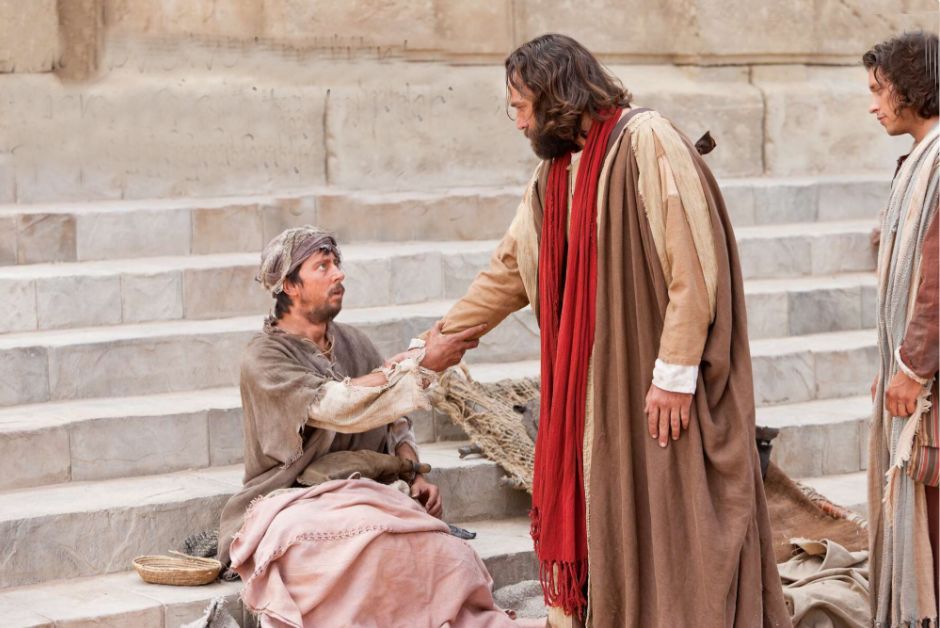
Your choice. I am impressed that:
- Peter invoked the name of Jesus Christ as he told the lame man to rise up and walk.
- Peter then took the man by the hand and lifted him up, showing a personal willingness to do what he could himself to be helpful.
- The healed man not only stood and walked but “leaped” and praised God, showing grateful enthusiasm for what had just occurred, without a hint of complaint that Peter and John hadn’t responded to his original request for money.
11. Hadn’t Peter heard of the 12th Article of Faith? Why didn’t he obey the law of the land as expounded by the duly constituted legal authorities? (4:18-20; 5:29.)
As a matter of fact, Peter hadn’t heard of it, as no such Article of Faith existed in his day. Even in our day, Church leaders have sometimes taken the position that Peter did, that it’s better to obey God than man and that we are divinely obligated only to obey just laws. On other occasions, they have taken the position that Church members should be strictly obedient to the laws of the land, even to those with which they may have disagreed, in order to not bring unnecessary problems upon the Church or its members.
12. Wasn’t death a rather harsh punishment for Ananias and Sapphira for being the equivalent of partial tithe-payers? At least they gave something to the support of the poor and needy, didn’t they? What modern applications can you see for their story?
The sin of Ananias and Sapphira wasn’t simply that they weren’t sufficiently generous but that they lied about it. It’s true enough that those guilty of similar offences today are not generally struck dead on the spot. But in those early days the Lord evidently used it as a great teaching moment. We are told that “great fear came on all them that heard these things.” It reminds me of the story of Uzzah in the Old Testament who attempted to steady the ark of the covenant and was struck dead for his trouble. In both cases, we’ll let the Lord mete out whatever final judgment He deems appropriate. But God doesn’t view death as the same kind of tragedy that mortals often consider it. He could well have had welcoming angels say something like, “Sorry to ruin your day, Uzzah (or Ananias, or Sapphira)! But welcome home. And thanks for being part of a lesson that your friends back on earth will never forget!”
Applications of the lesson of Ananias and Sapphira would include the importance of:
- Strict honesty in the payment of tithes.
- Generosity in fast offerings and contributions to the Humanitarian Fund.
- Truthfulness in interview for temple recommends or consideration for missionary service.
- Honesty with our fellow men, including when soliciting welfare assistance from the bishop.
13. How do you account for the changes in Peter from the timid apostle prior to the crucifixion to the bold, fearless preacher we find in Acts?
He is now filled with the Holy Ghost, which gives him courage, power, testimony, and boldness which cannot be feigned by those without that Spirit.
14. How do you account for the rapid growth of the church in the early chapters of Acts, with 3000 joining on one day, and 5000 more very soon thereafter?
The answer is essentially the same as that suggested for question 13 above. The Holy Ghost is now accompanying the disciples, and they preach with power and boldness. The Spirit bears witness of the truth of their message. And prospective converts receive the same Spirit and are filled with the same boldness, determination, and desire to do what is right.
